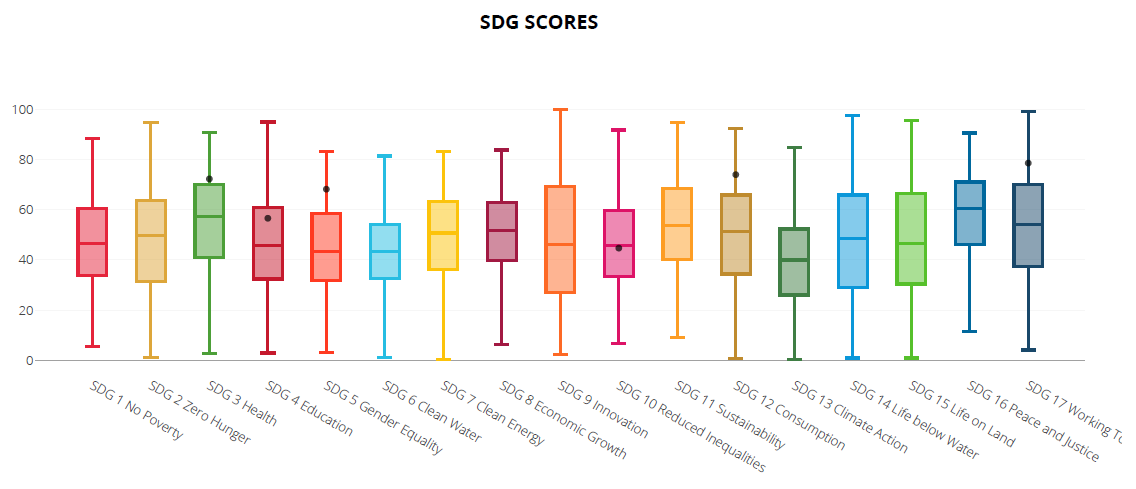The University of the Basque Country features among the top 49 universities worldwide in gender equality and among the top 59 in responsible consumption
The Times Higher Education ranking recognises the work of the University of the Basque Country (UPV/EHU) in scoring 7.97/10 in the Sustainable Development Goals
- News
First publication date: 24/04/2020

The THE (Times Higher Education) University Impact ranking has since last year been assessing the performance of universities with respect to the Agenda 2030 Sustainable Development Goals (SDGs) being promoted by the UN. This ranking uses indicators to assess the socioeconomic impact of higher education institutions on the 17 SDGs, including the areas of training, research, transfer and governance.
To participate in the ranking it is essential to provide results on SDG 17 (Partnerships for the Goals) and on at least another 3 goals. These data have been used to make two types of rankings: the global one, produced using the university’s results in the three SDGs in which it has achieved the best results, and the specific rankings for each SDG.
The UPV/EHU has been ranked in the 101-200 band of the overall ranking in this second edition in which over 766 universities in 85 countries have participated. This is the first time it has participated and it has done so on the basis of 6 goals: Health and Wellbeing (SDG 3), Quality Education (SDG 4), Gender Equality (SDG 5), Reduced Inequality (SDG 10), Responsible Production and Consumption (SDG12) and Partnerships for the Goals (SDG 17).
In its debut it has managed to position itself among the top 49 institutions worldwide in gender equality and among the top 59 institutions worldwide in responsible production and consumption. Also featuring is its contribution to health and wellbeing and in the area of partnerships to achieve sustainable development, where it scored 72.3 and 78.6 points out of 100, positioning it in the 101-200 band. The ranking has placed particular emphasis on the actions set up to promote women, scientific journals in the field of education, the publication of reports on environmental performance, measures to prevent discrimination and partnerships for achieving the goals. So the UPV/EHU has managed to position itself as the second university in the Spanish State that contributes the most towards responsible production and consumption and the fifth in health and wellbeing as well as gender equality.
The University of Auckland in New Zealand continues to lead this ranking and the top 3 is completed by two Australian universities: the University of Sydney and Western Sydney University.
A good starting point with a well-planned route
The results of this 2020 edition are based on data from the 2017-2018 academic year, which coincides with the period that saw the setting up of the EHUagenda 2030 for sustainable development and the Panel of indicators for monitoring it. Estibaliz Saez de Camara-Oleaga, head of Sustainability, stresses that “during the process to draw up the agenda we were able to see that we were not starting from scratch and that we had already covered part of the way in many of the SDGs. Specific degrees and research, the promoting of culture on human rights, equality policies between men and women, assistance to people with disabilities, co-operation in development and environmental management are not foreign to what we have been doing for many years. The EHUagenda 2030 aims to take a further step to Integrate private and local efforts for the university community in a consistent way, and as part of a shared, interconnected endeavour to proceed along this path together”, she added.
The results of the 2018-2019 academic year were published on the EHUagenda web site coinciding with its first anniversary, and significant improvements have already been observed in various indicators: number of lecturers participating in innovation projects for sustainability (up from 137 to 234); percentage of energy consumed from renewable sources (up from 46% to 82%); percentage of procurement contracts incorporating ethical, social and environmental clauses (up from 56% to 100%) and the number of PhD theses (up from 28 to 64).



